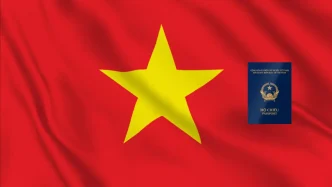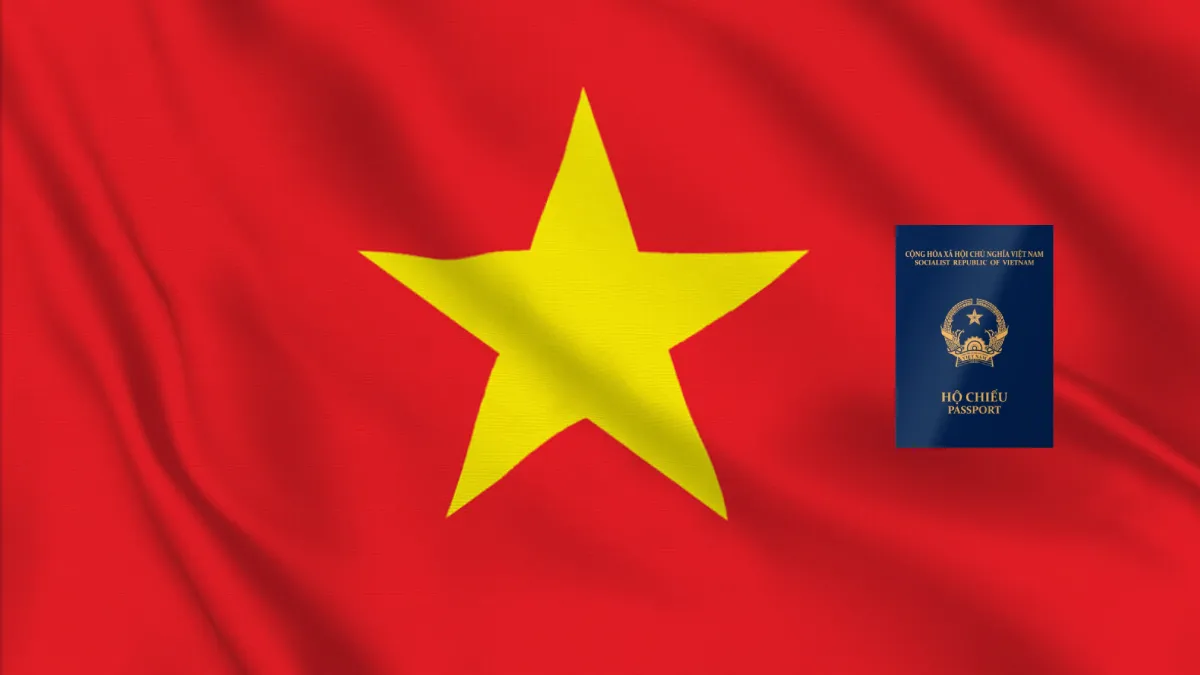In a landmark decision, Vietnam’s National Assembly (NA) has passed amendments to the Law on Vietnamese Nationality, introducing more flexible conditions for foreign investors, scientists, and experts seeking citizenship. Approved on June 24, 2025, during the 9th session of the 15th NA in Hanoi, the revised law aims to attract highly skilled individuals to contribute to the nation’s development. Set to take effect on July 1, 2025, the changes also spark debate over national security and the balance between openness and sovereignty.
A Strategic Shift to Attract Talent
The amended law targets individuals who have made significant contributions to Vietnam’s growth or defense, or whose naturalization is deemed beneficial to the state. Under the new provisions, such applicants are exempt from standard requirements like lengthy residency periods, Vietnamese language proficiency, and financial self-sufficiency. This builds on existing frameworks outlined in Decree 16/2020/NĐ-CP, which previously set similar exemptions for exceptional cases.
One of the most notable changes is the allowance for certain individuals to retain their foreign nationality alongside Vietnamese citizenship, a privilege previously extended primarily to those with Vietnamese relatives. This dual nationality option, subject to presidential approval, marks a departure from Vietnam’s long-standing principle of single nationality, enshrined in the constitution and aligned with practices in many other countries. Applicants residing abroad can now submit documents through Vietnam’s overseas diplomatic missions, streamlining the process further.
Minister of Justice Nguyễn Hải Ninh, who presented the revisions ahead of the vote, emphasized that the law reflects Vietnam’s evolving needs. “We aim to harness global expertise while ensuring alignment with national interests” he said. The government plans to develop a “special mechanism for naturalization” under Resolution 57-NQ/TW, though details remain under study to ensure they meet current socio-economic demands.
Balancing Openness with National Security
While the amendments signal Vietnam’s intent to integrate into the global economy, they have not been without controversy. During NA discussions, several deputies expressed concerns about relaxing citizenship conditions, particularly regarding potential risks to national security, public order, and social stability. Questions were raised about how dual nationality might affect legal consistency across related legislation, including the Civil Code, Housing Law, Land Law, and Investment Law, among others.
Addressing these concerns, Minister Ninh reaffirmed that the principle of single nationality remains a constitutional cornerstone. The amended Article 5 codifies existing decrees to ensure clarity, while exceptions for dual nationality are tightly regulated. For instance, individuals holding sensitive positions—such as roles in the armed forces, cryptographic organizations, or elected offices within the Communist Party of Vietnam (CPV), the state, or the Vietnam Fatherland Front (a key political coalition)—must hold only Vietnamese nationality and maintain permanent residence in the country.
“Caution is paramount when it comes to positions tied to national security” Ninh stressed during the session. The government has also mandated a comprehensive review of related legal documents within two years of the law’s implementation, tasking ministries with proposing amendments to ensure coherence regarding the rights and obligations of dual nationals.
Streamlining Processes and Addressing Disputes
Beyond eligibility criteria, the amendments tackle procedural and administrative challenges. A significant revision in Clause 8 of Article 5 stipulates that decisions by competent authorities on nationality matters—such as rejections of naturalization or restoration applications—are not subject to complaints or lawsuits. This aims to protect Vietnam’s sovereignty during the review process, particularly in cases where applicants fail to meet legal conditions, such as providing proof of renunciation of foreign nationality, or when national security concerns arise.
Minister Ninh cited practical challenges, noting that some applicants, despite guidance, could not fulfill requirements by the time the Ministry of Justice completed its review. In other instances, security-related objections from agencies led to case rejections. While this clause limits formal appeals, the law ensures that petitions or proposals on nationality issues will still be considered by relevant authorities under existing legal frameworks.
In a nod to cultural integration, the government has also responded to deputies’ suggestions on naming conventions. Applicants for naturalization or restoration of citizenship who retain dual nationality can now choose a hybrid name—combining Vietnamese and foreign elements—to ease their personal and professional lives across borders. This revision, incorporated into Clauses 4 of Articles 19 and 23, reflects a broader push for international alignment while preserving national identity.
Digital Transformation and Future Challenges
The amendments also lay the groundwork for modernizing nationality procedures through digital technology. Article 39 outlines the government’s responsibility to explore digital solutions for application processes, though Minister Ninh cautioned that such reforms must be approached with care. “Nationality matters are not mere administrative tasks; they are tied to sovereignty” he explained. As such, digitalization will proceed in phases, balancing efficiency with security during the comprehensive revision of the law and the development of a forthcoming implementing decree.
This cautious approach underscores Vietnam’s broader digital transformation goals, which seek to simplify bureaucratic processes while safeguarding state interests. However, the phased rollout suggests that full online integration for nationality applications may take years, as policymakers weigh technical and legal implications.
Broader Implications for Vietnam’s Global Standing
The revised Law on Vietnamese Nationality arrives at a time when Vietnam is positioning itself as a hub for foreign investment and innovation. By easing citizenship pathways for high-caliber professionals, the country hopes to bolster sectors like technology, science, and infrastructure, where global expertise can drive progress. The allowance for dual nationality, albeit limited, signals a pragmatic shift, recognizing the realities of a connected world where talent often holds ties to multiple nations.
Yet, the law’s emphasis on security and sovereignty reflects Vietnam’s unique political context. As a socialist state under CPV leadership, the government remains wary of external influences that could undermine stability. The strict rules for sensitive positions and the exclusion of appeals on nationality decisions illustrate this tension between openness and control—a balancing act that will likely shape future policy debates.
Public reaction to the amendments has been mixed, based on sentiment gathered from social media platforms like X. While some Vietnamese netizens welcome the potential influx of expertise, others question whether relaxed rules could erode national identity or create legal loopholes for foreign influence. These concerns echo the NA deputies’ reservations, suggesting that the government will need to address public skepticism as the law takes effect.
Regionally, Vietnam’s move aligns with trends across Southeast Asia, where countries like Singapore and Malaysia have long offered tailored citizenship or residency programs to attract talent. However, Vietnam’s approach remains more restrictive, reflecting its distinct governance model. Comparisons with neighbors may fuel further discussion on whether Hanoi should liberalize further or maintain its cautious stance.
Looking Ahead
As Vietnam prepares to implement the amended nationality law, questions linger about its long-term impact. Will the promise of citizenship draw the global talent the country seeks, or will security-driven restrictions deter potential applicants? How will dual nationality provisions evolve in practice, particularly amid calls for legal consistency? And can digital reforms keep pace with administrative needs without compromising sovereignty?
For now, the government faces the dual task of promoting the law’s benefits while reassuring citizens and lawmakers of its safeguards. As July 1, 2025, approaches, the eyes of both domestic observers and the international community will be on Hanoi, watching how this legislative shift reshapes Vietnam’s relationship with the world.















